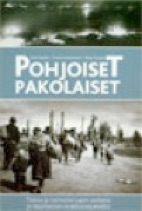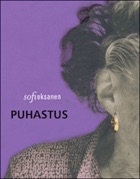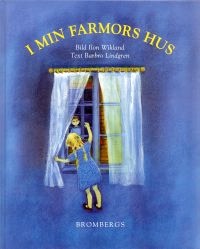Boklådan



Boklådan 2008-08-20 | Uppdaterad 2009-01-28
14 juni är de baltiska folkens sorgedag. Då inleddes deras Golgatavandring. Denna natt 1941 grep och deporterade kommunisterna tusentals män, kvinnor och barn, som i boskapsvagnar fördes bort till Sibirien. De flesta återvände aldrig.
Enbart från Estland försvann 11000 människor på detta sätt. Under den tyska ockupationen avrättades sedan i Estland 5000 människor. Efter kommunisternas återkomst följde ytterligare terror. Sammanlagt förlorade Estland under och efter kriget 100000 människor. 30000 av dem var flyktingar, som kom till Sverige.
I boken Landkänning (Bokverkstan) får vi möta två av dessa flyktingar, Anu och Aksel Mart i dagböcker samt genom de brev de skrev till varandra under och efter flykten. Mai Beijer har översatt texterna till svenska. Aksel flydde först till Finland för att undkomma tyskarnas mobilisering av vapenföra estniska män, Anu kom efter med barnen. 19.2 1944 skriver Anu inför det väntade ryska storangreppet mot Narva: ”Om Himlen vill kommer vi att klara också det här. Kan du fatta att när de evakuerade Narva fick människorna, även småbarnen, sitta tre dygn i godsvagnarna och vänta.” Aksels flykt var nära att få ett tragiskt slut. Han greps på stranden av kustbevakningen men lyckades muta sig fri med 200 kilo vete.
Sedan familjen kommit över till Finland gick flykten vidare till Sverige. Här visade sig mycket snabbt vilken social kompetens esterna hade. Omedelbart organiserade man sig i föreningar. Skolor startades, körer bildades. Redan 28 oktober 1944 utkom den första estniska tidningen i Sverige. Bakgrunden till denna enastående förmåga att samverka finns i det estniska nationella uppvaknandet under 1800-talet, och det har i sin tur sin bakgrund i de väckelserörelser, som inspirerades av herrnhutiska predikanter på 1700-talet.
Mötet med Sverige var i huvudsak mycket positivt. Aksel fick en svår ögoninflammation och skriver från Linköpings lasarett 1/11 1944: ”Svenskarna är verkligen enastående gästfria.” Familjen vistades på flyktingförläggningen i Medevi. Där blir det vardag. Den långsamma, passiva tillvaron tar över. Man försöker hålla modet uppe med föreningsliv och kulturverksamhet medan världskriget dundrar vidare på andra sidan Östersjön. Det blir alltmer tydligt att Estland än en gång skall hamna under kommunistiskt välde. Barnen blir sjuka, rykten vandrar, Anu och Aksel arbetar intensivt med att lära sig svenska. Man lyssnar till estniska radiosändningar från Königsberg och läser Östgöta Dagblads estniska bilaga.
En välvillig lägerchef avlöses av en kitslig person, som till och med begär att få granska alla brev. Finland får en dyrköpt fred till priset av att alla flyktingar från Estland och Ingermanland måste utlämnas. Från Estland kommer nyheter om släktingar. En av männen har gått till skogs sedan deras bataljon besegrats av ryssarna vid Peipus. En annan har blivit partisan, skogsbroder. Ibland skymtar ett hopp att de västallierade skall kunna gripa in: ”Och även den mest blodtörstiga av alla regimer måste väl någon gång få nog av allt slaktande och all blodlukt? Då skulle kanske de allierade kunna utverka att den ryska regimen tillät att de skickade sin skyddspolis och då kunde vi under deras beskydd återvända och börja bygga upp vårt land på nytt.”(Aksel 21/11 1944) Det var en fåfäng förhoppning.
I mars 1945 når Sovjet även in till flyktingarna i Sverige. Den sovjetiska ambassadens tjänstemän reser runt till lägren för att få dem att återvända. I juni 1946 kommer en skrivelse från Statens flyktingkommission, undertecknad av Ernst Bexelius. Där heter det: ”… det är ett svenskt önskemål, att flyktingarna återvända till sina hemländer…att försök att påverka flyktingarna att icke återvända till hemlandet få under inga förhållanden förekomma. Vidare inskärptes för baltiska flyktingar … att bedrivande av politisk propaganda från dessas sida i Sverige icke är tillåtet.” När detta skrevs hade fem år gått sedan 14 juni 1941. Man kunde veta i stort sett allt som fanns att veta om Gulag. De baltiska flyktingarna hade alla upplevt 14 juni. För dem måste Ernst Bexelius skrivelse ha framstått som en ren cynism – vilket den också var.
Anu och Aksel Mark lät sig inte störas. De arbetade vidare, kom ut i samhället, byggde upp en ny social tillvaro, samtidigt som de slöt upp kring sitt lilla exil-Estland. Till sist fick de uppleva att hemlandet blev fritt. I en dikt sammanfattade Aksel sitt liv:
De säger – Ni har frihet.
Vi säger – Ni har ett fosterland.
Vi behöver lära oss att kunna flyga över gränserna.
Vi behöver lära oss att kunna simma genom tiderna.
Vi måste blir fåglar, när detta är nödvändigt.
Vi måste blir fiskar, när detta är nödvändigt.
För de hindras inte av några gränser.
De hotas inte i översvämningstider.
Christian Braw
Vardagsbrev från våldsam tid
Mart, Anu & Mart Aksel, 2008, Landkänning : Brevväxling mellan Anu och Aksel Mark under deras första år som flyktingar från Estland 1944-1945, övers Mai Beijer, 240 s,
ISBN 978-91-85893-83-6.
Örebro: Bokverkstan, 2008
Flyktingar i norr
Dokument och berättelser om kriget i Lappland och evakueringen av Nordfinland hösten 1944
Erkki Rautio

Den finskspråkiga upplagan publicerades hösten 2004. Pohjoiset pakolaiset :
Lapin väestön evakuointi Ruotsiin Lapin sodan aikana 1944-1945, jota täydentävät evakkojen muistelmat ja myöhemmin paljastuneista asiakirjalähteistä saadut tiedot.
Erkki Rautio (1947-98) historian opinnäyte "Pohjoiset pakolaiset" on paras tieteellinen tutkimus Lapin evakkoajasta 1944-45. Tässä kirjassa Raution tutkimus on saanut lisää "lihaa luidensa ympärille" Lapin ihmisten kokemuksista ja muisteluksista sekä toisaalta myöhemmin paljastuneista uusista lähteistä. Kirja on kuvitettu pääosin evakkotaipaleen kokeneiden perhealbumien kuvilla. Syksyllä 2004 on kulunut 60 vuotta Lapin sodan puhkeamisesta ja lappilaisten evakkoon joutumisesta. Kirja on kunnianosoitus sisukkaalle ja uutteralle evakkosukupolvelle, joka ankarien kokemusten jälkeen kykeni vielä jälleenrakentamaan Lapin hämmmästyttävän nopeasti.

Laajuus: 224 s.
Julkaisuvuosi: 2005
ISBN: 952-5271-22-6
Kieli: suomi
Kustantaja: Pohjan Väylä Oy
Barnbok, Krig,
Utgivningsår: 2005
ISBN: 9185251119
I farmors hus bor farmor, förstås, och farfar, Ilon, katterna Micki och Mitzvi och hunden Tito, Ilons hund. Först var Tito Ilons mammas och pappas hund, men sedan ville de resa ut i världen, och då kunde inte Tito och Ilon följa med. Men Ilon trivs jättebra hos farmor och i den stora trädgården med alla äppelträd och plommonträd där hon kan leka. Och hon leker allra helst med Peeter, som är hennes bästa vän.
Men det finns en sak som inte är bra och det är ryssarna. De vill ta över landet och bestämmer redan en massa saker, som att man inte får ha radio. Alla är rädda för ryssarna, för att de ska komma och ta en. De ber inte om lov, utan gör som de vill, och skickar folk till Sibirien. Och en dag är Peeter borta....
I Farmors hus är Ilon Wiklands egen berättelse om vad som hände under brinnande krig i Estland. Barbro Lindgren har skrivit och Ilon Wikland står förstås för de fina teckningarna. Boken är en fortsättning på Den långa, långa resan.
Utdrag ur boken:
Farmor vill att jag ska vara duktig. Det är jag också, jag spelar både piano och fiol och ritar bra. Tyska kan jag prata, men ryska vill jag inte lära mig, för ryssarna vill ta vårt land och köra bort oss härifrån.
Det är också de som har bestämt att ingen får ha radio hemma hos sig. Därför har farfar gömt sin radio i en lucka i köksgolvet.

Sverige och den stora flykten från Estland 1943-1944
Pris: SEK 200 + porto.
Distribution:
SWEDISH SCIENCE PRESS
Box 118
SE-751 04 Uppsala
SWEDEN
Telefon: +46 (0)18-36 55 66
ISSN 0065-0897
ISBN 91-85352-52-7
För 60 år sedan, mot slutet av andra världskriget, kom över 30 000 människor från Estland hit till Sverige. De flesta av estlandssvenskarna hämtades hit av svenska myndigheter, medan esterna fick fly över Östersjön i små fiskebåtar eller i överlastade skutor. Det var bönder och fiskare från den nordvästra delen av landet men också många ledande intellektuella från Tallin och Tartu.
Svenskarnas försök att rädda estlandssvenskarna hade ett tyst stöd från kretsen runt SS-chefen Himmler, som på detta sätt hoppades få kontakt med engelska och amerikanska politiker i Stockholm för att undersöka om det var möjligt att få till stånd en separatfred med västmakterna. Aktionen för att rädda över den intellektuella eliten från Baltikum till Sverige kom däremot till på ett initiativ från kretsen kring USA:s president Roosevelt. Tanken var i första hand att rädda judar från Ungern och Baltikum.
Kravet att ta hand om och försörja de många flyktingarna satte den svenska förvaltningen på svåra prov, och den svenska diplomatin fick en synnerligen delikat uppgift när Sovjets vice utrikesminister lät förstå att alla baltiska flyktingar, som ju var "sovjetmedborgare", omgående borde sänds tillbaka. Den svenska ståndpunkten blev att ingen flykting skulle tvingas att återvända mot sin vilja.
När några balter i tysk uniform efter kriget utlämnades till Sovjet, förorsakade detta i Sverige en enorm proteststorm., "baltutlämningen", medan de ryska diplomaterna i Stockholm tolkade det som en skicklig eftergift från den svenska regeringens sida för att slippa lämna ut de många civila flyktingarna.

Lite länkar till föreningar och förlag.
Estnisk flyktingar

Flyktbåten / Rein Norberg
Förlag:R&S
ISBN:91-29-58047-1
EstlandAndra världskriget 1939-1945 Flykt

Utrensning
Den gamla kvinnan Aliide har av svartsjuka en gång gjort sig skyldig till att hennes egen syster deporterats till Sibirien, men har också själv våldtagits och misshandlats av sovjetiska soldater. Zara är ung och har sökt sig bort från sin barndoms Vladivostok till Berlin, där hon fastnat i prostitution och drogmissbruk. Till slut bryter hon sig loss, och Aliide hittar den avsvimmade Zara utanför sitt torp i Estland. Det är strax efter murens fall. De två kvinnornas öden visar sig vara oväntat och tätt sammantvinnade.
Utrensning är en stor läsupplevelse och skönlitterär lektion i en närhistoria som utspelats alldeles intill oss. Med sitt osvikliga sinne för detaljer, med sin lyhördhet och sitt vackra och klara språk, som inte väjer för det mest vämjeliga utan att någonsin snaska i enskildheter, och som samtidigt låter ana ett återhållet raseri, ger Sofi Oksanen läsaren en mörk och obönhörlig skildring av ett skeende som länge fört en tillvaro i medvetandets skugga. Det är spännande, gripande och lärorikt.
"Trots det omfattande och mångbottnade material som romanen är sammansatt av är den häpnadsväckande koncentrerad, tät och stringent. De olika nivåerna och berättarperspektiven varieras smidigt. Romanen är skickligt berättad och uppbyggd, den är grym, rörande och mångfacetterad. Puhdistus vibrerar av spänning: outtalade hemligheter och djupt skamliga dåd som huvudpersonerna blir utsatta för eller själv utför breder ut sig som ett nätverk över boken och tvingar läsaren att läsa vidare."
Kristina Malmio i Hufvudstadsbladet om Utrensning
DN: Nordiska rådets kulturpris

Oksanen on õppinud Helsingi Ülikoolis kirjandusteadust ning Helsingi teatrikõrgkoolis dramaturgiat, ta on tegutsenud mitme lehe kolumnistina ning avaldanud ajakirjanduses arvamust ühiskondlikel ja poliitilistel teemadel.
Sofi Oksanen on võitnud mitmeid prestiižseid Soome kirjanduspreemiaid, nende seas Finlandia, Runebergi ja Waltari auhind.
• "Stalinin lehmät" 2003, eesti keeles "Stalini lehmad", tõlkinud Tauno Vahter, Tänapäev 2004.
• "Baby Jane" 2005, eesti keeles "Baby Jane", tõlkinud Tiina Pappel, Tänapäev 2006.
• "Puhdistus" 2008, eesti keeles „Puhastus“, tõlkinud Jan Kaus, Varrak 2009.

Näidendid:
• "Puhdistus" 2007
• "High Heels Society" 2008
Märtsis 2009 andis WSOY kirjastus välja Sofi Oksaneni ja Imbi Paju toimetatud soomekeelse kogumiku „Kõige taga oli hirm“ („Kaiken takana oli pelko“), mille läbivaks teemaks on Eesti ühiskonna saatus nõukogude ajal.
"Puhastusest" (Purge):
“With her early literary maturity, the young Finnish writer Sofi Oksanen is trying to repair a tragic Estonian past. /…/ Her novel depicts the depths of human anguish and brutal oppression. But with so much grace and longing for joy, that it becomes extremely soft and calming. /…/ The vibrant relationship between these two women … is magically beautiful.”
Air France Madame (France)
“Sofi Oksanen depicts Aliide’s and Zara’s memories with a nervous and increasingly dense pace, with both realistic and poetic intensity. /…/ Born in 1977 to an Estonian mother and a Finnish father, Sofi Oksanen transcends this half-century tragedy with great force, cold anger and cruel irony.”
Journal du Dimanche (France)
“This novel is hard and beautiful at the same time; it is impossible to drop it as it admirably describes lying and fear.”
Livres Hebdo (France)
“Sofi Oksanen moves back and forth in history carving the time with her penknife. /…/ So blossoming, loving and protective … her language seems made to heal the wounds of entire generations. /…/ Sofi Oksanen writes as Aliide makes medical potions in her kitchen.”
Telerama (France)
“Sofi Oksanen weaves a web where the fates of two women, one at the end of her life, the other still young but desperate and exhausted, cross each other. /…/ Like a talented filmmaker, Sofi Oksanen interweaves the descriptions of a gloomy and decadent present with the memories of a chaotic past, embracing a land repeatedly enslaved.”
Le Magazine Littéraire (France)
“In Purge, Sofi Oksanen removes all taboos, from the violence of half a century of Soviet occupation to the regular exploitation of the female body. Through the fate of these two women, Oksanen explores a world made of torture, deportation and rape. /…/ In addition to the moving and breathtaking plot, the power of Purge is in this striking parallel between the oppression of women and of a whole country. /…/ Sofi Oksanen describes the trauma, whether personal or collective, with chilling accuracy.”
Elle (France)
“Sofi Oksanen looks like a rock star, but she writes better than Stieg Larsson. /…/ Sofi Oksanen has published a strong book with an uncomfortable title: Purge. This novel is as mesmerizing as Millennium, the bestselling trilogy written by Swedish cult author Stieg Larsson. /…/ Purge is a wonderful book, poetic and rough at the same time.”
Grazia (Italy)
“Sofi Oksanen is a writer with a strong political vein that looks at the world from the point of view of the victims. /…/ [She] has a strong and fierce style without sentimentality. /…/ [She] is a cruel and resolute warrior like her writing.”
La Repubblica (Italy)
“Purge tells two parallel stories of humiliation and violence against women during a tragic period in Estonian history.”
Europa (Italy)
“Purge tells a family story of rivalry, betrayal and desire during the years of Soviet occupation, Stalin’s purges and the desperate resistance of Estonian partisans. /…/ [It] is a novel with a psychological dimension that tells with honesty a tragic chapter in European history.”
Turisti per caso magazine (Italy)
“Purge is a story of violence, silence and Europe. /…/ It is a story about silence, claustrophobia, shame and secrecy. [It is a] European story.”
L’Uomo Vogue (Italy)
“The two parallel stories of Zara and Aliide interwove with tension in Purge at a tight pace until the final dramatic climax.”
Il Foglio (Italy)
“Purge examines the traumas of the Estonian Nation during the Soviet occupation, with a double plot that binds past and present together. /…/ Loss of freedom and exploitation of women are two central topics that transcend any temporary frame.”
Internazionale (Italy)
“Sofi Oksanen is a great writer, passionate and cultivated, as her intense, rich, restless and sometimes almost morbid style reveals. /…/ With fascinating symbolic elements the novel shows a continuous dialogue between present and past.”
Il Denaro quotidiano (Italy)
“In Purge Sofi Oksanen gives voice to those who never had one; never before have people like Zara and Aliide had a place in western literature.”
Metro (Italy)
“Purge is a story of gulag survival, repression and the tale of two sisters in love with the same man. Sofi Oksanen is a literary sensation and a very nice discovery. From Finland with pain.”
Marie Claire (Italy)
“Purge is the award-winning novel written by Finnish writer Sofi Oksanen, a literary sensation that has sold the rights in twenty-six countries so far and that tells the tragedy of Estonia from the point of view of two women. /…/ This novel is about violence, humiliation and compromise of a nation that has long had to forget its identity. Purge is a story from the point of view of the women.”
Il Secolo XIX (Italy)
“Sofi Oksanen is a writer with a new and profound literary voice.”
Glamour (Italy)
“Like in a thriller, we find two parallel stories about violence that tell the unhappy history of Estonian women.”
D_La Repubblica (Italy)
“A compelling document of the eternally humane and the equally eternal inhumane/…/ The story is a mosaic of short chapters from different periods in time, and with this technique [Oksanen] illuminates many important themes from several different perspectives. But what impresses the very most in the book is the vibrant and precise prose, where small details often are what make the scenes ring true and authentic. /…/ As a depiction of Estonia during and after the [second world] war, I can’t imagine anything other than that the novel is excellent: the picture of the time and personal characteristics are absolutely convincing, one reads as if this simply must have happened.”
Dag og Tid (Norway)
“Now and then I read books that are so good that I can’t quite understand how the author does it. This applies to Purge. …With an elegant cross cutting, the two women’s stories are unfolded… Oksanen’s strength as a storyteller lies in the insinuations, the details… This fantastic novel is also a declaration of love to Estonia.”
Dagbladet (Norway)
“[Oksanen] has a fantastic ability to stage grotesque scenes that result in remarkable and intense observations. These can come unexpectedly, but nonetheless feel natural in the context… Sofi Oksanen is an unusually ambitious storyteller with a firm grasp of the many seemingly loose threads she tosses out. Although Purge is not a comfortable book to read, it is a terribly gratifying journey through time and space.”
Dagens Næringsliv (Norway)
“An overwhelming reading experience…an intense suspense…takes hold of the reader from the very first lines. Cause even if this young author writes about human trafficking, about abuse and brutality in the Estonian countryside, it’s all about the literary allusions and the art of ambiguity… Oksanen is a tightrope walker. She has a sense for details, and gives them the required weight and significance… Sofi Oksanen has with this strong, literary narrative given us a unique insight not only into the modern history of Estonia. Piercingly and mercilessly she reveals the human detriment of brutal political regimes. In an impressive way, she also manages to tie the abuses of the past to the heartbreaking story of young Zara and her destiny.”
Dagsavisen (Norway)
“An extraordinarily strong novel…Oksanen depicts the most horrifying in merciless detail… Oksanen is unusually skilled when it comes to building a dramatic structure. This is a brutal novel. It is brutally physical, it exposes the brutality in the greater and smaller games we play, and it is brutally suspenseful to read.”
NRK (Norway)
“[Oksanen] impresses once again. Her ability to combine the minute details of everyday life with major historic contexts makes Sofi Oksanen an exceptionally interesting author.”
Aftenposten (Norway)
“The entire story is masterly composed and multifaceted: the two women as altering protagonists, pieces of a fugitive’s diary, confidential surveillance reports, and all supplemented with chapter mottos. That the narrative is not chronological, but repeatedly retrieves storylines and circumstances from various earlier time periods, does not only add to the suspense…but also to the wild ways of emotions, jealousy and sexuality, and the terrible justification of murder. /…/ It is astonishingly administered by Sofi Oksanen in this book about “purging”, in a combination of dimensions … that grabs hold of the reader to expose the inexorability of existence.”
Information (Denmark)
“It’s no wonder that Purge has been nominated for the Nordic Council Literature Prize, because it is not only an incredibly elegant story about two women whose existences are determined by great national events, it is also a stinging account of a chapter of Eastern European history that we are on the verge of forgetting. Or denying. /…/ Sofi Oksanen is an eminently skilled epic novelist, who intricately unravels her fascinating story, bit by bit. She has a sense for the subtle, inner drama of a distorted mind and love’s self-deceptive logic. Finland can be proud of its new, brilliant star. Only the very best that can bring to light a suffering mind and find a wounded nation within.”
Jyllands-Posten (Denmark)
“One reads with rigid fingers and abated breath, it is almost unbearable to continue reading, but one turns the pages to find out what happens. At the same time, one makes an effort to read slow enough to enjoy the prose, which is like a tattoo needle into the cerebral cortex. Purge is stirring, lingering and insanely good.”
Berlingske Tidende ***Five Stars*** (Denmark)
“[Purge] processes Estonia’s modern history and its first chapter displays the most condensed, metaphorically effective prose I have read in a long time. /…/ I imagine that the metaphors pave a way out of the muteness, that which develops out of the shame and guilt of oppression. Although Oksanen’s beautiful prose hardly is revolutionary, she breaks the silence. And she does it with a determination that provides popular storytelling with a legitimacy and weight that one doesn’t often experience.”
Aftonbladet (Sweden)
“Oksanen brings forth the details with trembling suspense and grippingly sifts the historic chain of events through a feminist filter. Aliide and Zara are both tormented women with heavy secrets, and their meeting is not only a coming together of two generations of victims, but also a coming together of two generations of unwilling perpetrators. Purge is a brutal story, in which the destructive shame and the will to survive go hand in hand. The result is as horrific as it is well-composed.”
Tidningen Kulturen (Sweden)
“The implicit conflict in Purge is solidarity vs. fear. /…/ Oksanen writes forcefully, diary entries by Hans in the secret room and the depiction of young Zara’s horrendous experiences are presented against the powerful backdrop of Aliide’s life story and inner world of ideas. /…/ Towards the end, the book is almost unbearable, both in regard to suspense and because one senses the greater national trauma in Zara’s and Aliide’s destinies. By reading Sofi Oksanen one regains faith in literary art’s power and potential.”
Göteborgs-Posten (Sweden)
“Purge is in every respect a ruthless and deeply affecting story. /…/ Sofi Oksanen’s prose is not very experimental, she writes simply but musically, often with quite short sentences. But it is hardly minimalistic storytelling, Oksanen rather lets her protagonists think all of their disorganized thoughts ‘out loud’, the details are numerous and the language is close to the characters – it is primarily their language, not the author’s. This would of course be impossible if Oksanen didn’t so completely have the language in the palm of her hand, she certainly knows how to tell a story. Just as important is her exceptional power of observation, which identifies details in scenery as well as shifts in mood. Purge is in all aspects a significant novel.”
Helsingborgs Dagblad (Sweden)
“Purge deals with heavy subjects but it is not a heavy book, it is more accurately thrillerishly vigorous and sharp. The author doesn’t flinch when it comes to describing raw sexual violence – but she also has a feel for sensuality, tastes, smells, human longing and clever intrigues. /…/ If Oksanen wins the Nordic Council Literary Prize in March I wouldn’t be surprised, this is a novel that deserves all attention.”
Expressen (Sweden)
“[Sofi Oksanen] tells her story altogether amazingly. /…/ So simply and yet magnificently and skillfully Sofi Oksanen opens her novel Purge. There is something Bertold Brechtian about the short opening scene /…/ Purge is an utterly dark novel, but with an artistic brilliance that is astonishing.”
Dagens Nyheter (Sweden)
“Oksanen’s strength lies in her ability to describe how it is to live with shame seared into your flesh”
Upsala Nya Tidning (Sweden)
“Purge is an immensely remarkable book and an excellent novel.”
Þorgerður E. Sigurðardóttir / Kiljan (National TV) (Iceland)
“Purge is a thrilling story, almost like a crime novel. It is, in my view, a total masterpiece…. Although the story it tells is gruesome – both the story of the girl and the old woman – this is not a depressing story. Sofi manages to avoid making us melancholy or hopeless or depressed during the reading. And Sigurdur Karlsson‘s translation is excellent.”
Illugi Jökulsson / Kiljan (National TV) (Iceland)
“This novel has such depths that one cannot help being absolutely thrilled by it. Purge is a work of genius, an awfully good novel.”
Egill Helgason / Kiljan (National TV) (Iceland)
“Sofi Oksanen belongs to a new generation of European writers who have got the task of dealing with the greatest historical change of recent times, the overturn of the Soviet Union and its aftermath. ... This novel is one of the most delightful events in publishing in Icelandic this year.”
Radio 1 (Iceland)
“As a drama, “Purge” (2007) was a theater event; as a published volume, it is a true reading experience. /…/ Now Oksanen the storyteller shows us that a novel is always a novel. The countryside of western Estonia in the 20th century smoulders in her new work as an epic place and time, giving this chronicle of the emotions of two generations of women an almost mythological context.”
Helsingin Sanomat (Finland)
“The multidimensionality of Purge is startling. /…/ Shame, betrayal, guilt, atonement. Sofi Oksanen’s third novel encompasses these grand themes with the complexity and seriousness worthy of them. In her hands, they are made concrete in the grisly events of recent Estonian history. /…/ Oksanen has publicly criticised the trendy nostalgia for the Soviet Union, those who put on a hammer and sickle t-shirt and stick a Lenin pin on their chest without a thought to what they are advertising. With Purge, Oksanen doesn’t just rap these pin-wearers on the knuckles, she hits them with a sledgehammer.”
Turun Sanomat (Finland)
“Weak when it comes to love, Aliide Truu’s final solution has an Old Testament suddenness that is cathartic. /…/ Through Aliide’s tragic history, Oksanen ties the political to the personal, to the present moment in history.”
Aamulehti (Finland)
“Through the story of two generations of women, Oksanen describes the tragic events of the Estonian Republic, and how they infiltrate a family’s life, with incredible power. /…/ The story forces us to ponder the question of whether there is both good and bad patriotism, and what horrors we are willing to commit in its name. /… / The text is poetic, precise, and economical. /…/ With her novel Purge, Sofi Oksanen leaps to the foremost ranks of Finnish writers.”
YLE Uutiset (Finland)
“Sofi Oksanen’s third novel brings the silenced stories of Estonia’s present and its recent past into the open. /…/ Purge is a breathtaking novel dense with emotion that snares the reader from the very first pages. Oksanen’s narrative carries us into its world. It is touching, horrifying, it makes us shudder and gasp for breath.”
Ilkka (Finland)
“Purge is a shockingly good novel, an extremely well-written book about shudderingly ugly things.”
Etelä-Saimaa (Finland)
“Oksanen describes womanhood with the most perceptive of instincts: the bud of lightness and innocence, shyness, timidity, jealousy, sincerity, cunning, shame, and silence.”
Savon Sanomat (Finland)
“The slow unfolding of the plot at the beginning of the novel is a pleasure to follow. The leisurely pace of the narrative enables the reader to remain in the minds of the characters. Towards the end of the novel, Oksanen cranks up the pace. Despite the denouement feeling inevitable, Oksanen manages to surprise her reader. This merciless novel is generous in leaving blanks for its reader to fill in.”
Ylioppilaslehti (Finland)
“You’d think that almost four hundred pages of endless, tragic destinies would make its reader gasp for breath; this would be true if it were not for Oksanen’s writing, which is so comfortingly poetic and mild. Her prose settles like a filter over the story, making it possible for the reader to embrace.”
Karjalainen (Finland)
“[Purge is a] novel of love and betrayal, a tragedy of almost antique dimensions. /…/ Despite being crafted from such a rich and multilayered material, [Purge] is a work surprisingly focused, dense, logical and to the point. The various narrative levels and points of view are smoothly varied and interconnected. The novel is aptly constructed and crafted; it is cruel, compelling, and nuanced. Purge vibrates with suspense: unspoken secrets and deeply shameful deeds which the characters are either exposed to or perform themselves spreads like a web over the book, forcing the reader to go on turning the pages. /…/ The writing is vivid, precise, and beautiful.”
Hufvudstadsbladet (Finland)
Postimehe aasta inimene 2009 - Sofi Oksanen! >
Mari Kleini arvustus Eesti Päevalehes>
Intervjuu Sofi Oksaneniga Pärnu Postimehes>
Alo Lõhmuse intervjuu Postimehes>
Imbi Paju autorist Eesti Ekspressis>
Maimu Bergi artikkel Eesti Päevalehes>



